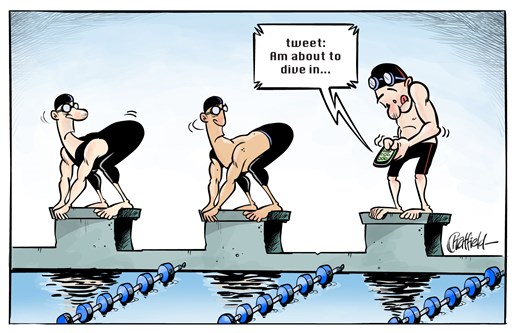Olympic Congress ends with 66 broad recommendations

The IOC must exploit the new digital media more actively, says Olympic Congress. Copyright IOC/Jason Chatfield
05.10.2009
By Søren BangAfter three days of lengthy meetings, the first Olympic Congress since 1994 ended today by adopting 66 recommendations for the Olympic Movement.
According to IOC president Jacques Rogge the recommendations seek to articulate what has been agreed among the 1,249 congress participants and observers.
Central in the final document is the section on the Olympic Movement structure where a number of recommendations to ensure a better, more open and democratic leadership in sport within the Olympic Movement.
The paper states that the Olympic Movement depends on the highest standards when it comes to ethical conduct and good governance, and that all members of the Olympic Movement should incorporate the minimum standards of good, open and democratic governance such as a working group of IOC suggested earlier this year.
The congress recommends that all organisations from the IOC and downwards incorporate rules to ensure that those who do not live up to ethical standards, may be exposed to economic or other sanctions. Moreover, the paper recommends that all organisations in the Olympic movement incorporate a code of ethics inspired by the IOC's own code.
Good governance
The proposals which affect the international sports federation’s structure and management express at the least some recognition the problems that the IOC and various federations have - or had - with poorly-run organisations or abuse of power by prominent officals.
On the same note the recommendations deal with match-fixing, which in the final document is now being perceived as such a big challenge to the Olympic movement that sport must involve national governments in combating the problem.
In return, the paper does not mention the idea of establishing a genuine anti-corruption agency which like the World Anti-Doping Agency could provide a more coordinated and firm action against corruption, match-fixing and poor management.
A number of senior managers within the Olympic movement, including the president of world football’s governing body, FIFA, IOC member, Sepp Blatter, rejected such thoughts at the Congress. (see http://www.playthegame.org/news/detailed/is-there-a-need-for-a-world-anti-corruption-agency-4546.html)
Nor is there any reference to the proposal by Human Rights Watch that the IOC systematically monitor human rights in host countries or candidate countries for Olympic Games.
“We are not human rights experts and rely on the advice of organisations like Amnesty International, Human Rights Watch and the United Nations, and we are still looking for the best way to act on this matter, so it can work with the Olympic ideal of human dignity,” IOC President Jacques Rogge said at a press meeting at the end of the Congress.
"We can not be held responsible for everything that happens in the world, but when it comes to human rights in relation to sport, we do have a responsibility," Rogge said.
A more youthful IOC
In his view, the most important challenges are to ensure the health, rights and social situation of elite athletes, and to secure the Olympic movement's appeal to young people.
The Ccongress debates showed that many sports and national sports organisations have significant drop-out rates in competitive sport among young people as well as a generally declining interest to follow sport, including the Olympics.
The IOC has not committed itself to creating a genuine youth commission as suggested by Lord Sebastian Coe, but the organisation wants a structured dialogue with young people and youth researchers.
According to the recommendations, the IOC and the rest of the Olympic movement should focus not only on traditional competitive sports, but also take a more targeted look at recreational activities.
Finally, the Olympic movement must learn to use new digital media more actively without undermining the rights of TV-broadcasters and hence the revenues from television rights.
Read all 66 recommendations on the website of the IOC:
http://www.olympic.org/Documents/Conferences_Forums_and_Events/2009_Olympic_Congress/Olympic_Congress_Recommendations.pdf





